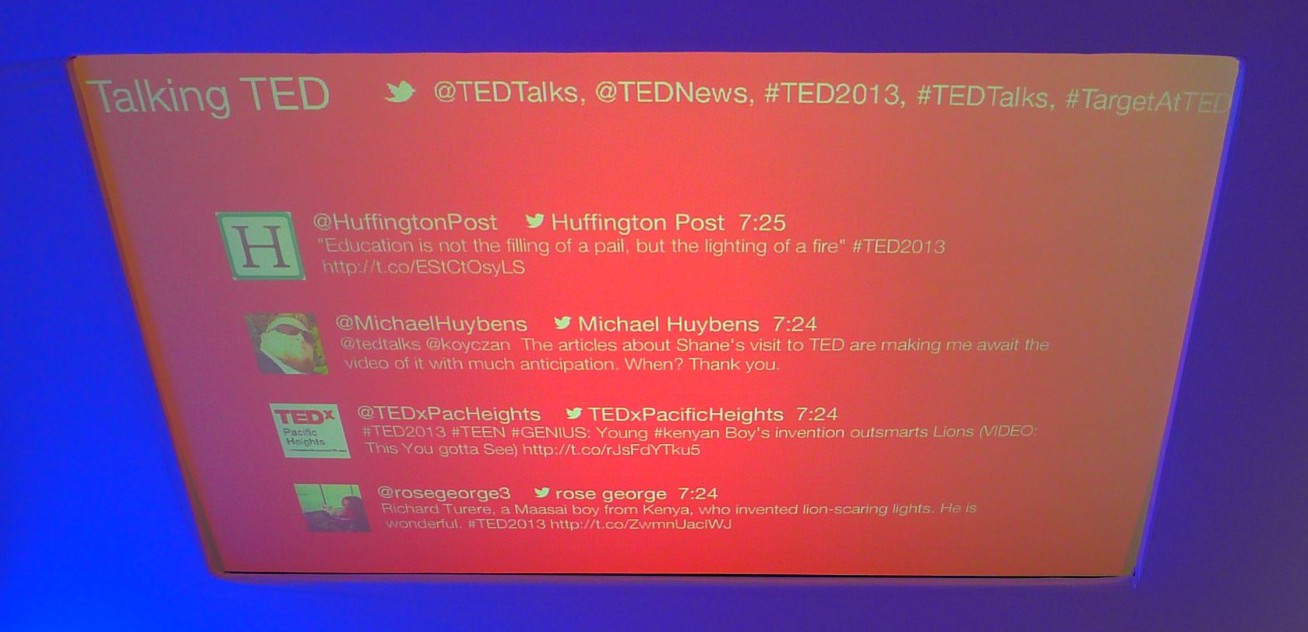Social media is the center of all marketing activities these days!
So how do we capitalize on this at events?
As Twitter is our speciality, we have some tips on how you can use it to develop a community and keep people buzzing about your event before, during and after your event!
In preparation of your event, we have outlined these four steps:
1. Set up a Twitter Account for Your Event
Make sure that your brand and event is well represented by your profile:
- Use the event logo as the profile picture for instant recognition and consistency.
- Use a short and simple name of your event as your Twitter username (what follows the sign @). The full event name can be mentioned in the name field to provide the full detail. Example: If your event is called "The Business Experience", you might choose the username to be @bizXperience then use "The Business Experience" in the full name field.
- Enter a short description in the bio field, and don't forget to include the name, dates, venue and event hashtag.

Club Med Belgium chose a simple name related to the brand (@ClubMedBE) and used the brand logo as the avatar.
2. Grow Your Following
Now that you've set up your account, make your attendees aware of it so they can follow you, and develop a strategy of following other Twitter users with the aim of increasing your following:
- Start following key influencers in your field, join the conversation, ReTweet them and mention them in your Tweets when appropriate.
- Create a list of event speakers, exhibitors, VIPs, etc. Make sure you set the list to "public" so attendees can access the list. Users are notified when they are added to a list, and will often thank you publicly for adding them - which means more exposure for your event.
-
Search for related Hashtags on Twitter and engage with those who Tweet using them.
3. Create an Event Hashtag
A hashtag is a keyword preceded by the # sign and it creates a clickable link when you include them in your Tweets. Anyone who then clicks on that hashtag is shown a stream of Tweets, all using the same one.
An effective hashtag is:
- Short - no one wants to type a long word on a mobile phone…
- Unique - before deciding on a hashtag, check whether anyone is already using it by searching it on Twitter. You don't want your Tweets to be lost in a stream of Tweets about a celebrity or any thing unrelated to your event. Common practice is to choose an abbreviation of your event, followed by the year. Example: #MWC13Conf used by Mobile World Congress for their conferences in 2013.
- Easy to remember - make it easy for attendees to Tweet without having to think about it too much and you'll have much more social conversation about your event.
4. Communicate the Hashtag
Communicate the event hashtag and your Twitter Username everywhere!
Promote them on all print and electronic marketing material, on your website, in your blog, in your email signature, during the event opening remarks, and on all of your social media channels. Remind attendees constantly.
Did you know that Tweets containing a hastag receive twice as much engagement as those that don't? (Though be careful not to overdo it - one or two hashtags are enough on Twitter.)

At TED, they used several hashtags depending on the topic: #TED2013 for the general event, #TEDTalks for the speakers and #TargetAtTED for related events.
Of course, to really drive conversation and engagement at your event, a social wall is an invaluable tool.
Why not try one at your next event and experience the buzz and excitement when people see their message on the big screen!
Get in touch about using one today!



